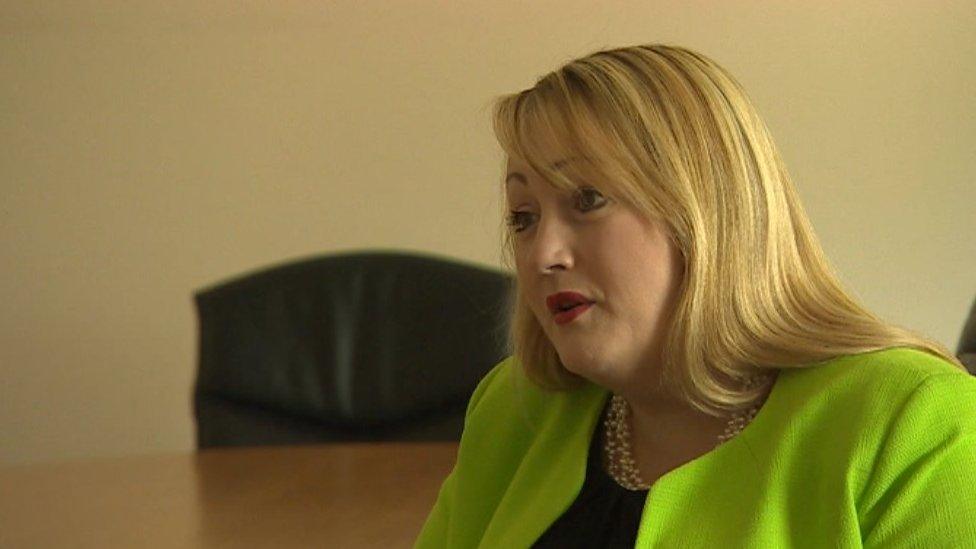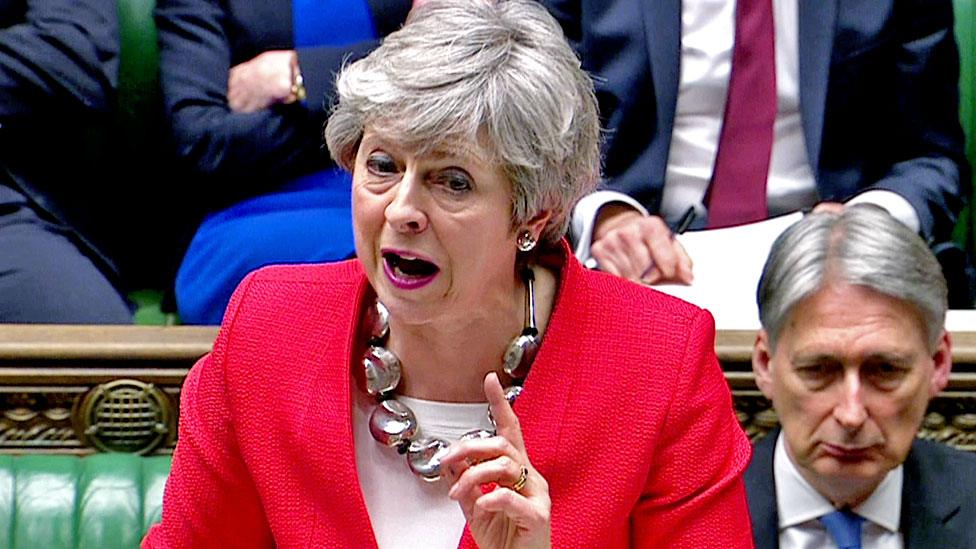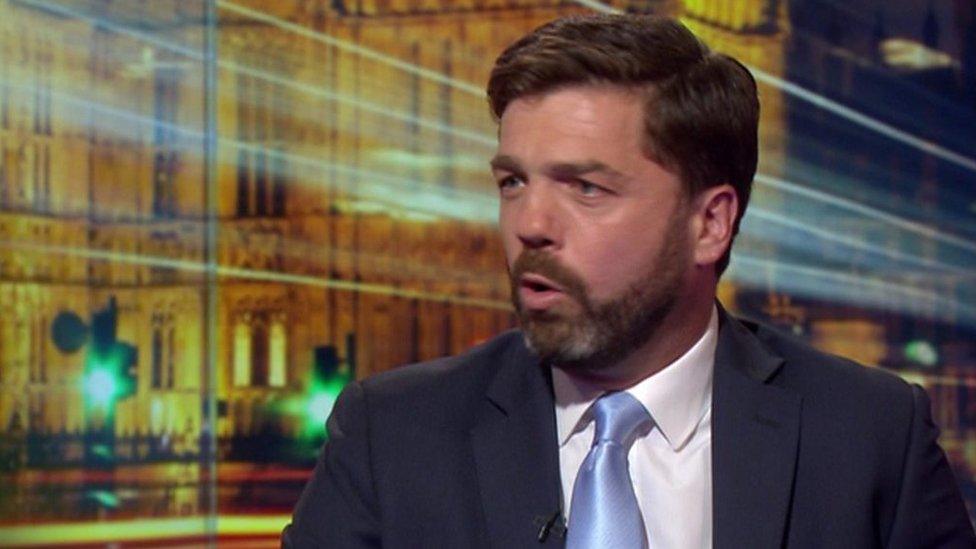Brexit: Ministers against income tax rise for no-deal
- Published
- comments

Rebecca Evans says the challenge of a no-deal Brexit would be "severe"
The Welsh Government has said it does not intend using new income tax powers to boost its budget if the UK leaves the European Union without a deal.
Ministers said they would ask for more UK Treasury funding to help deal with the UK leaving the EU without a deal.
Welsh Finance Minister Rebecca Evans said using the powers could put more "pressure on hard-pressed families".
The first minister has left the door open to raising income tax before the next assembly election in 2021.
The Welsh Government gains powers to vary income tax rates in April, which it has decided not to change in its 2019-2020 budget.
Mark Drakeford told assembly members in October 2018, in his former role as finance secretary, that he will stick to Labour's commitment in the 2016 assembly election not to change tax rates "unless I'm compelled to do so".
Mr Drakeford added at the time that he would not say "never is forever" and cited Brexit as a "major difference that the manifesto never anticipated."
During a news conference with journalists in Cardiff Bay on Tuesday, Ms Evans said the new income tax levers were "limited" and that the Welsh Government was "very conscious that many families across Wales are struggling and we need to bear that in mind I think in any decisions that we're taking".
"I think that the challenge of a no-deal Brexit would be so severe that we would certainly be looking to UK government for additional funding to assist us with that," she added.
In February, following a meeting in Cardiff with UK Chief Treasury Secretary Liz Truss, Ms Evans and the Scottish Finance Secretary said it was unclear whether the UK government was planning for an emergency budget in the event of a no-deal Brexit.
In 2018, Chancellor Philip Hammond said the UK government would set a new budget if the UK exits without a deal.
- Published12 March 2019

- Published15 February 2019

- Published12 March 2019

- Published3 October 2018
